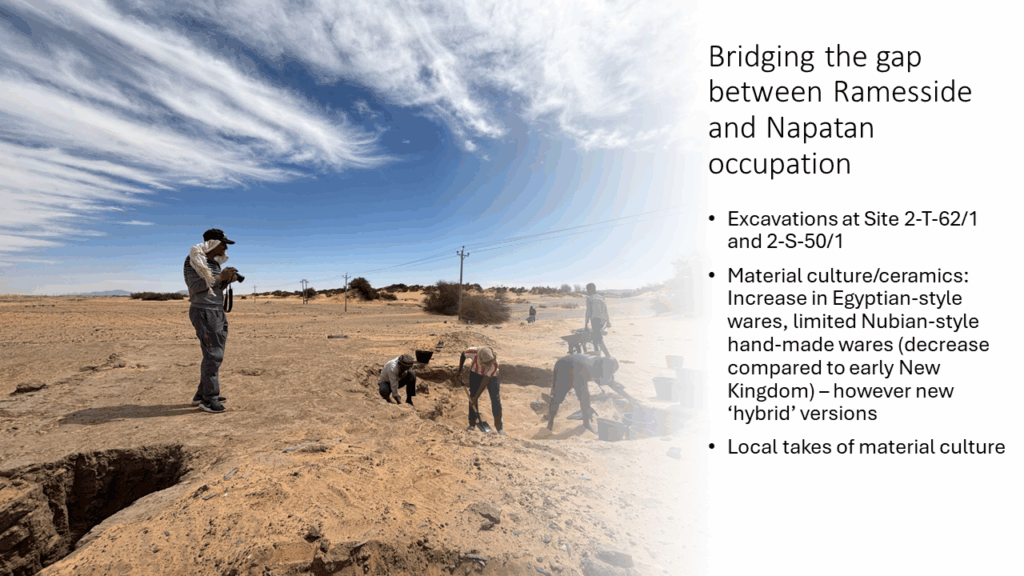Sudan’s revolution is well underway. Millions of Sudanese took off to the streets of Khartoum and other locations across the country to demand freedom of choice. This is most inspiring for us as human beings living in the present, but also as scholars writing about the Nubian past.
I have so far directed my attention to understanding the general logics of what was happening in contexts outside mainstream colonial sites to try to identify how colonial peripheries in New Kingdom Nubia became centres of human experience that produced alternatives to colonial social relations.
In the New Kingdom colonial period, a wave of Egyptian-style objects flooded Nubia and determined on which grounds various social negotiations would take place—i.e. based on people’s adoption and use of foreign objects in local contexts. On the one hand, this means that if you managed to consume Egyptian-style shabtis or jewellery, you’d probably have a good chance of negotiating an ambivalent sense of identity in-between ‚Egypt‘ and ‚Nubia‘. However, if you didn’t manage to possess such objects, your previous life would probably have changed little anyway, at least from an archaeological point of view—after all, we need the stuff to be able to reconstruct human experience anyway…
So, I have been interested in the experiences of those who could not really negotiate in colonized Nubia; those who couldn’t really find effective ways of making inputs to culture, despite their immense inputs to society: though we don’t know who were those people living and dying outside of mainstream colonial sites, there’s a huge chance we’re actually talking about farmers and other labourers who were the ‚hidden hand‘ that supported colonial economy. (Julien Cooper’s recent suggestion that desert dwellers were the ‚hidden hand‘ of the Egyptian gold enterprise in the Nubian deserts, Cooper 2021, is so interesting that it deserves to be expanded to seek other ‚hidden hands‘ that remained invisible in our narratives so far.)
I’m currently teaching a course on postcolonial and decolonial approaches to the archaeology of the Nile valley. This also greatly inspires my research and the way I look for interesting things in the archaeological record to „hear“ the voices of those who remained silenced by major constraints to action in antiquity. So far, what I find most interesting is people’s sense of collectivism. In social and geographical peripheries—here I’m referring to non-elites working for colonial elites at temple-towns and farmers and other workers living/dying in the outskirts of these major sites—individual inputs to culture are rare as consumption was limited and scarcity was rampant. However, when there’s scarcity, there’s also wisdom—Brazilian geographer Milton Santos would agree (Santos 2001).
This sums up my research in this first year as a DiverseNile postdoc. I have been focusing on finding interesting features in the archaeological record of excavated/surveyed sites in the peripheries of colonized Nubia while waiting to be back in Sudan to celebrate the achievements of local people past and present. I have discussed these topics in more detail in three forthcoming publications, which should be available very soon:
Lemos, R. (forthcoming). Heart scarabs and other heart-related objects in New Kingdom Nubia. Sudan & Nubia 25.
Lemos, R. (forthcoming). Can we decolonise the ancient past? Bridging postcolonial and decolonial theory in Sudanese and Nubian archaeology. Cambridge Archaeological Journal.
Lemos, R. and J. Budka. (forthcoming). Alternatives to colonization and marginal identities in New Kingdom colonial Nubia (1550–1070 BCE). World Archaeology (themed issue on ‚The archaeology of marginal places and identities‘).
References:
Cooper, J. (2021). Between the Nile and the Red Sea: Medjay Desert Polities in the Third to First Millennium BCE. Old World: Journal of Ancient Africa and Eurasia 1 (1): 1–22. https://doi.org/10.1163/26670755-01010001
Santos, M. 2001. Por uma outra globalização: do pensamento único à consciência universal. 6th ed. Rio de Janeiro: Record.

